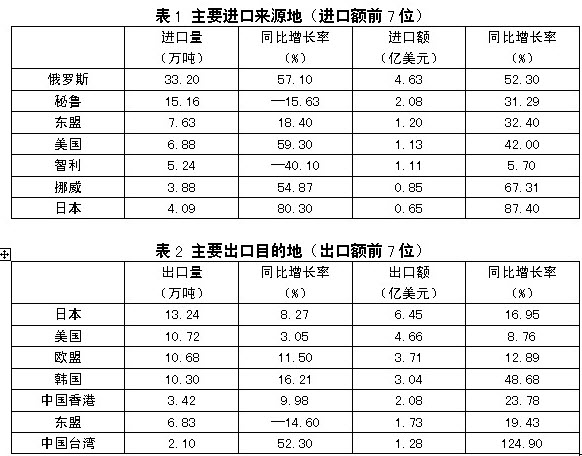
下载APP

【单选题】


How did the author know that most parental-excuse notes were written by students themselves ?()
A.The excuse notes were written in dull words.
B.The notes were more like stories than facts.
C.He called their parents and found out the truth.
D.The handwriting obviously looked like children’s.
A.
I was in my third year of teaching writing at Ralph High School in New York, when one of my students, 15-year-old Mikey, gave me a note from his mother. It explained his absence (缺席) from class the day before:
B.
"Dear Mr. McCort, Mikey’s grandmother, who is eighty years of age, fell down the stairs from too much coffee and I kept Mikey at home to take care of her and his baby sister so I could go to my job. Please excuse Mikey and he’ll do his best in the future. P.S. His grandmother is OK. "
C.
I had seen Mikey writing the note at his desk. I said nothing. Most parental-excuse notes I received were penned by my students. If I were to deal with them, I’d be busy 24 hours a day. The writers of those notes didn’t realize that honest excuse notes were usually dull : "Peter was late because the alarm clock didn’t go off. "
D.
The students always said it was bard putting 200 words together on any subject, but when they produced excuse notes, they were excellent. So I decided to type out a dozen excuse notes and gave them to my classes. I said, "They’re supposed to be written by parents, but actually they are not. True, Mikey" The students looked at me nervously.
E.
"Now, this will be the first class to study the art of the excuse note -the first class, ever, to practice writing them. " Everyone smiled as I went on, "Today I’d like you to write An Excuse Note from Adam to God’ or ’ An Excuse Note from Eve to God’. " Heads went down. Pens raced across paper. For the first time ever I saw students so immersed (专心的) in their writing, they had to be asked to go to lunch by their friends.
F.
The next day everyone had excuse notes. Heated discussions followed. But suddenly I saw the head at the door. He entered the classroom and walked up and down, looking at papers, and then said, "I’d like you to see me in my office. " My heart sank.
G.
When I stepped into his office, he came to shake my hand and said, "I just want to tell you that that lesson, that task, whatever the hell you were doing, was great. Those kids were writing on the college level. Thank you. \
举报
参考答案:


参考解析:




刷刷题刷刷变学霸
举一反三

【单选题】某市对52种建筑防水卷材产品进行质量抽检,其中有8种产品的低温柔度不合格,10种产品的可溶物含量不达标,9种产品的接缝剪切性能不合格,同时两项不合格的有7种,有1种产品这三项都不合格,则三项全部合格的建筑防水卷材产品有多少种?()
A.
37
B.
36
C.
35
D.
34
【单选题】纵观世界流行音乐史,你会发现它的基本上就是黑、白两种不同文化的融合史,而且总是由黑人提供原始素材,然后白人把它“偷”过来,并加以完善,最终作为一种崭新的商品推向全球,牙买加由于其特殊的地理位置,成为这一融合的最大受益者,这种模式也顺理成章地推广到田径领域,终于成就了牙买加田径运动的辉煌。这段文字主要谈论()
A.
世界流行音乐史的发展模式
B.
文化融合给牙买加带来的好处
C.
地理位置在文化交流中的特殊意义
D.
黑人和白人对音乐、体育的不同贡献
【单选题】品牌一词,“品”在前,“牌”在后,这说明要先有“品”,才有“牌”,也就是说,要是没有好的产品做支撑,单靠打广告,搞赞助,即使能做出个名牌,也只是()。这方面的教训()。所谓的“品”,不仅指“产品”、“品质”,还包括企业的“品行”,也就是说企业还要积极地履行社会责任。依次填入括号部分最恰当的一项是()
A.
掩耳盗铃;比比皆是
B.
昙花一现;不胜枚举
C.
名实不符;振聋发聩
D.
浮光掠影;屡见不鲜
【单选题】A.忙碌;可靠 B.漠视;坚实 C.误解;基础 D.麻木;强大
A.
在高楼林立的现代都市里,在人们的()中,本已零落的古建筑更加凋零,每天都面临着彻底消失的命运,如果教育能让孩子从小感受古建筑所蕴含的魅力,让他们懂得珍惜,就能最终积累出保护古代建筑最()的力量。
B.
依次填入括号部分最恰当的一项是()
【单选题】任何城市的演变都是城市的历史与新元素的(),城市的历史和历史建筑应当是我们的资源、城市的特色、而不应被看作城市建设的()。依次填入括号部分最恰当的一项是()
A.
融会贯通;负担
B.
兼收并蓄;阻力
C.
此消彼长;包袱
D.
相辅相成;障碍
【单选题】A.①③② B.②①③ C.②③① D.③①②
A.
在西柏坡时期,党中央:
B.
①领导了解放区的土改运动;
C.
②召开了党的七届二中全会;
D.
③组织指挥了辽沈、淮海、平津三大战役。
E.
上述历史事件出现的先后顺序是()
【单选题】(51)处应填()。 A.won B.made C.gained D.earned
A.
I’m told that during an international game of chess (国际象棋), many beautiful moves could bc made on a chessboard. In a decisive (36) in which he was evenly matched with a Russian master (37) , Marshall found his queen under serious attack. There were several ways of (38) , and since the queen is the most (39) piece, spectators (观众) thought Marshall would naturally move his queen to (40) .
B.
Deep in thought, Marshall used all his time to consider the (41) . He picked up his queen, paused, and placed it down on the most (42) square of all--a square from which the queen could be (43) by any one of three enemy pieces.
C.
Marshall had sacrificed (牺牲) his queen--an unthinkable move. Everyone else was (44) .
D.
Then the Russian, and the (45) , realized that Marshall had actually made a (46) move. It was clear that no matter how the (47) was taken, the Russian would soon be in a (48) position. Seeing this, the Russian admitted his defeat.
E.
When spectators recovered from the (49) of Marshall’s dating, they showered the chessboard with money. Marshall had achieved (50) in a very unusual and dating fashion--he had (51) by sacrificing the queen.
F.
To me, it’s not (52) that he won. What counts is that Marshall had broken with standard (53) to make such a move. He had looked (54) the usual patterns of play and had been willing to consider an imaginative risk on the basis of his judgment and his judgment alone. No matter how the game (55) , Marshall was the winner.
【单选题】2010年一季度,我国与美国水产品进出口贸易额占我国水产品进出口贸易总额的比重约为() A.7.8% B.12.7% C.14.2% D.17.6%
A.
三、根据以下资料,回答131-135题 2010年一季度,我国水产品贸易进出口总量158.7万吨,进出口总额40.9亿美元,同比分别增长14.2%和29.0%.其中,出口量67.1万吨,出口量67.1万吨,出口额26.5亿美元,同比分别增长11.7%和24.9%;进口量91.6万吨,进口额14.4亿美元,同比分别增长16.0%和37.5%。
B.


【单选题】2010年7月,党中央、国务院召开了西部大开发工作会议,总结西部大开发10年取得的巨大成就和丰富经验,全面分析国内外形势和西部大开发面临的新机遇、新挑战,关于西部大开发战略,下列表述不正确的是()
A.
西部大开发在我国区域协调发展总体战略中居于优先地位
B.
西部大开发战略实施的最主要目的是解决沿海同内地的贫富差距
C.
西部大开发覆盖地域指陕、甘、宁、青、新等西北五省(区)及西藏自治区
D.
实施西部大开发的核心工作时保障和改善民生

